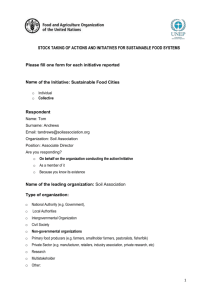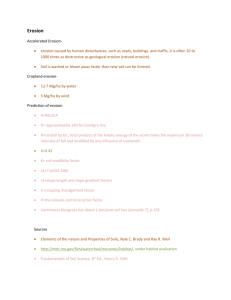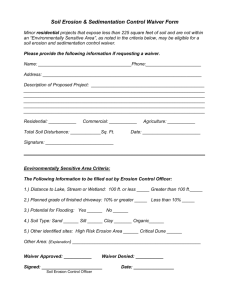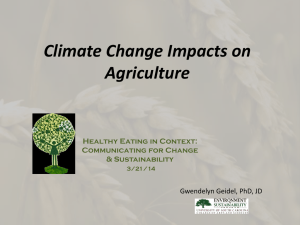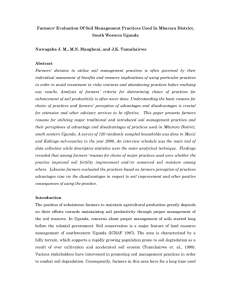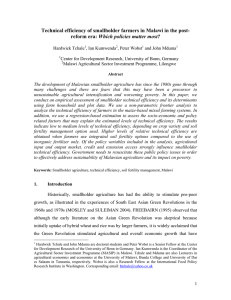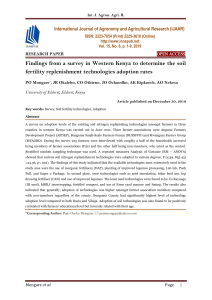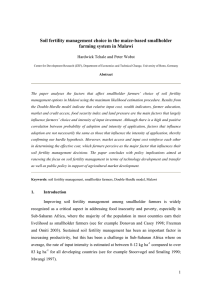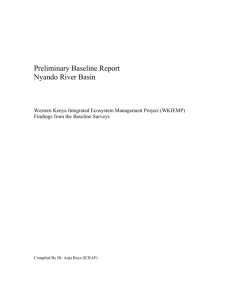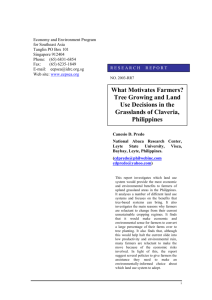factors influencing the adoption of land conserving technologies
advertisement
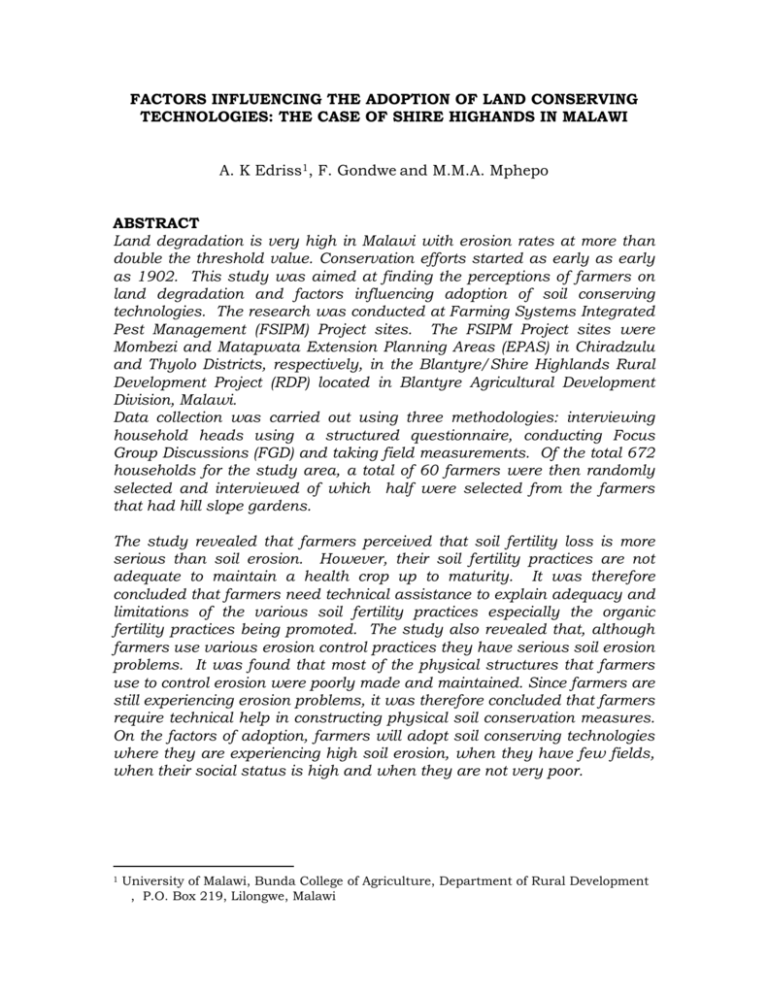
FACTORS INFLUENCING THE ADOPTION OF LAND CONSERVING TECHNOLOGIES: THE CASE OF SHIRE HIGHANDS IN MALAWI A. K Edriss1, F. Gondwe and M.M.A. Mphepo ABSTRACT Land degradation is very high in Malawi with erosion rates at more than double the threshold value. Conservation efforts started as early as early as 1902. This study was aimed at finding the perceptions of farmers on land degradation and factors influencing adoption of soil conserving technologies. The research was conducted at Farming Systems Integrated Pest Management (FSIPM) Project sites. The FSIPM Project sites were Mombezi and Matapwata Extension Planning Areas (EPAS) in Chiradzulu and Thyolo Districts, respectively, in the Blantyre/Shire Highlands Rural Development Project (RDP) located in Blantyre Agricultural Development Division, Malawi. Data collection was carried out using three methodologies: interviewing household heads using a structured questionnaire, conducting Focus Group Discussions (FGD) and taking field measurements. Of the total 672 households for the study area, a total of 60 farmers were then randomly selected and interviewed of which half were selected from the farmers that had hill slope gardens. The study revealed that farmers perceived that soil fertility loss is more serious than soil erosion. However, their soil fertility practices are not adequate to maintain a health crop up to maturity. It was therefore concluded that farmers need technical assistance to explain adequacy and limitations of the various soil fertility practices especially the organic fertility practices being promoted. The study also revealed that, although farmers use various erosion control practices they have serious soil erosion problems. It was found that most of the physical structures that farmers use to control erosion were poorly made and maintained. Since farmers are still experiencing erosion problems, it was therefore concluded that farmers require technical help in constructing physical soil conservation measures. On the factors of adoption, farmers will adopt soil conserving technologies where they are experiencing high soil erosion, when they have few fields, when their social status is high and when they are not very poor. 1 University of Malawi, Bunda College of Agriculture, Department of Rural Development , P.O. Box 219, Lilongwe, Malawi
